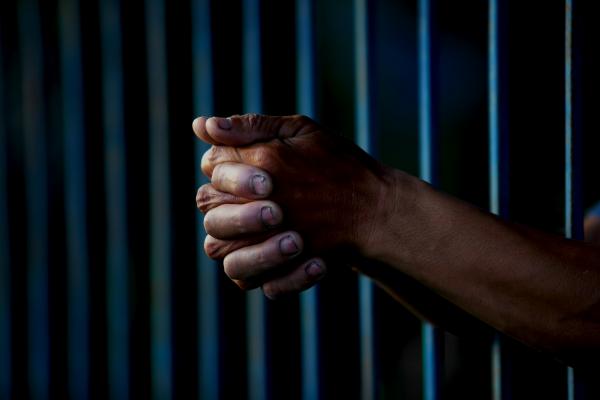Ta-Nehisi Coates is at it again — this time in The Atlantic’s newly released October 2015 issue.
In “The Black Family in the Age of Mass Incarceration,” Coates wrestles with the dark underside of criminal justice in the United States. As he is apt to do, Coates effortlessly teases out the connections between our nation’s present situation — unimaginably high rates of incarceration, particularly among black Americans — and our historical plundering of the black community. In the process, he articulates the socioeconomic and psychic havoc mass incarceration has wrought on the black community. On top of all this, Coates offers new insight into the work of (in)famous social scientist and politician, Daniel Patrick Moynihan.
Conceptually nuanced, historically rigorous, and artfully crafted, “Family” is a success on every level.
Yet some have been quick to point out what they see as major flaws in Coates’ thinking. Soon after Coates’ piece was published, Thabiti Anyabwile issued a cogent response decrying Coates’ apparent hopelessness. Anyabwile’s response highlighted fundamental differences in the two writers’ worldviews. Coates is deeply materialistic, though not the pejorative sense of the word.
“You must always remember that the sociology, the history, the economics, the graphs, the charts, the regressions all land, with great violence, upon the body,” Coates explains.
Physical bodies and the violence they endure, not theologies, are afforded primacy of place in Coates’ analyses. In this sense, Anyabwile serves as an interesting counterweight to Coates. A pastor at Capitol Hill Baptist Church and council member with The Gospel Coalition, Anyabwile is unabashedly Christian. The “comforting narrative of divine law,” eschewed so often by Coates, is one in which Christians like Anyabwile and myself regularly take solace.
Anyabwile’s hopelessness critique leads him to two more substantive criticisms of “Family.” First, he accuses Coates of failing to offer any specific policy solutions — something for which Coates himself faulted Moynihan. Second, Anyabwile claims Coates’ hopelessness, “tempts [him] to reject ‘respectability politics’ perhaps too quickly or too sweepingly.”
These criticisms may have merit, but I want to focus on the deeper problem Anyabwile points out — Coates’ supposed hopelessness. I too have been gripped by this facet of Coates’ writing, as it challenges some of my most taken-for-granted assumptions about God’s omniscience and omnipotence. I understand why a committed Christian may be averse to it. Even so, I would challenge Anyabwile to consider the ways in which this hopelessness serves as an asset, rather than a weakness, in Coates’ writing.
At first, I struggled to rationalize this point of view. Theologically, I am much closer to Anyabwile than I am to Coates. I believe in a God of justice and liberation. I believe the earthly kingdom established by God should be characterized by the freeing of oppressed peoples; a freeing from various forms of bondage into new, transformed life in Christ. Surely, this is a hopeful message.
Why, then, revel in the work of a writer whose thought feels so decidedly cynical?
Because Coates’ cynicism is not simply cynicism for cynicism’s sake. The “hopelessness” identified by Anyabwile affects something in our minds and hearts, if we allow it.
What should this hopelessness inspire in Coates’ audience, particularly those of us who identify as Christians?
In a word, urgency.
Coates practically comes out and says as much. In Between the World and Me, he claims,
“The spirit and soul are the body and brain, which are destructible — that is precisely why they are so precious.”
When the body and brain are plundered, we cannot comfort ourselves with the idea that spirit and soul live on en perpetua. They too are destroyed.
When reading Coates, whether “Family” or World, one can’t help but feel the pressing nature of his subject matter. Those of us who benefit from injustice so often forget the tactile, visceral duress endured by our neighbors, the very ones we were commanded by Jesus to love. In “Family,” Coates provides readers unfamiliar with the grim realities of life in “The Gray Wastes” with a much-needed glimpse into the material and spiritual burdens born by those for whom the “Wastes” constitute a “normal and anticipated marker in the transition into adulthood.”
We may not agree with Coates’ assertion that spirit, soul, body, and brain are all one and the same. Yet we can and should affirm the preciousness of these four entities. Whether or not the spirit and soul persevere after the plundering of a body, we Christians decry that plundering as an affront, both to the victim and the victim’s Creator. For this reason alone, Coates’ work should affect in us an impulse to radical empathy and, by extension, urgent justice work.
Which brings us back to Anyabwile’s concern with Coates’ hopelessness.
I’m inclined to think the biting, urgent nature of Coates’ writing has the potential to revitalize concern with issues of racial injustice among his readers, perhaps even among the larger American public. It certainly has for me. In this way, Coates’ hopelessness may function, somewhat paradoxically, as a source of tangible change in public policy. In other words, it may be a source of hope.
We’ve already seen evidence of this. Marie Gottschalk recently published another response to Coates’ piece in which she lists some policies that could be implemented to decarcerate our nation:
In identifying how the carceral state is deeply entangled in the racial, political, social, and economic fabric of the U.S., Coates takes his readers to the edge of dystopian despair. But Americans need to be careful about not stepping into the abyss: the idea that ending mass incarceration must be predicated on tackling the root causes of crimes such as unemployment, poverty, and unconscionable levels of social and economic inequality stratified by race and ethnicity… Major decarcerations elsewhere… were the result of comprehensive changes in penal policy over the short term, not sustained attacks on structural problems and the root causes of crime.
Rather than addressing structural inequality itself, as Coates does, Gottschalk proposes a “focus on reentry, justice reinvestment, and reducing recidivism” as the primary means through which we should pursue decarceration. These sound like tangible policy solutions to me. More importantly for our purposes, they are solutions that may experience increased popular support as a direct result of Coates’ work.
This kind of response should be all the more common among Coates’ Christian readers. Our role as kingdom-building disciples requires us to counter our history of plunder and exploitation with the building of an earthly existence that reflects God’s inverted spiritual economy — an economy in which first are last and last are first.
To the extent that Coates’ work motivates Christians to build this inverted kingdom, he has succeeded not only in “describing and detailing the phenomenon,” as Anyabwile claims. He has also created a solution, or at least an environment in which solutions become achievable.
In my last piece at Sojourners, I argued that white Christians must engage with Coates, as his writing provides us with a unique opportunity to enter, incarnationally, into the bondage experienced by many of our black neighbors. Through honest engagement with his work, we could begin to establish “fellowship and presence with [them] on [their] side of the walls.”
In “Family,” we have a similar opportunity. Yet, the policy-centric nature of the subject matter allows us to take this incarnational ethic one step further. Now, we can not only establish an empathic presence — we can enact concrete policy changes with the goal of freeing struggling people from unnecessary bondage, at least to some small degree.
Gottschalk is right in saying that Coates brings his readers “to the edge of dystopian despair.” Yet, this may not be a bad thing. Indeed, it may well be necessary for progress to be made on the issue of mass incarceration. Ideally, social change is born out of empathy — we rectify injustice out of care for the well-being of the marginal and maligned. In the case of mass incarceration, despair might serve as a necessary prerequisite to this kind of change-inducing empathy.
In Coates’ writing, I see the possibility of change in the midst of despair, of peacefulness in the midst of violence, and hope in the midst of hopelessness.
Got something to say about what you're reading? We value your feedback!

